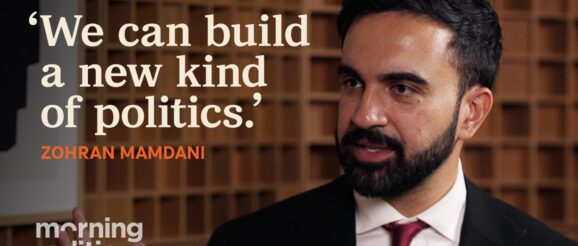NYC mayoral candidate Zohran Mamdani talks policies and positions

When Zohran Mamdani launched his mayoral campaign for New York City last year, many wrote off his chances.
He’s a South Asian Muslim Democratic socialist. He faced resistance from his own party’s establishment. Even The New York Times editorial board told voters not to support the 33-year-old.
And even though Mamdani tried hard to keep affordability at the center of his campaign, others tried to define his identity with unsubstantiated claims that he would promote Islamic law, that he supports terrorism and that he’s an antisemite.
“There are a lot of concerns based on a caricature of myself,” Mamdani said on Morning Edition. “I don’t blame New Yorkers for having that caricature because they’ve had to deal with more than $30 million of spending that paints me in that manner — that smears and slanders me, that artificially lengthens the color and the length of my beard, that calls me a monster.”

But for the most part New Yorkers didn’t fall for it. Mamdani is now the presumptive Democratic candidate after getting the most votes in the primary last week. He is one step closer to becoming mayor of the nation’s largest city.
Mamdani clarified remarks he made on NBC News’ Meet the Press about billionaires, saying, “I think the better question is whether working people have the right to exist, because what we’ve seen in this city is that more and more working people are being pushed out.”
Asked about his proposals, like free public transit and expanded childcare, he acknowledged that many of his ideas would need state-level support, particularly from Gov. Kathy Hochul, who has voiced skepticism and so far has not endorsed him. But he remained optimistic, citing his success in launching New York City’s first fare-free bus pilot as evidence that progressive reform is achievable.
This interview has been lightly edited for length and clarity.
Interview highlights
Produced and edited for radio by Arezou Rezvani and Mansee Khurana, video edited by Courtney Theophin, and adapted for digital by Majd Al-Waheidi.
